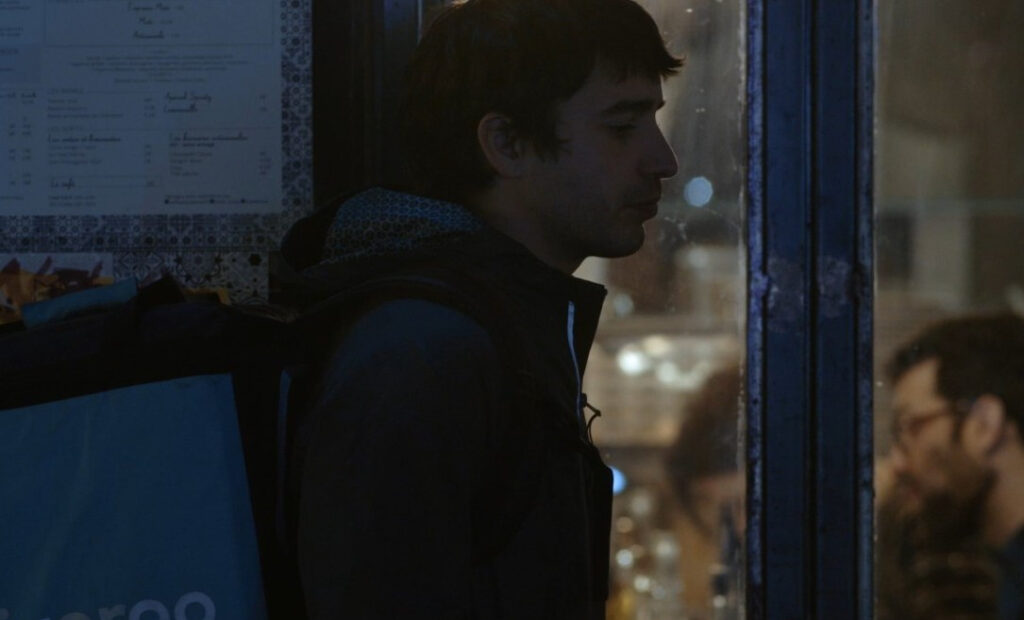The World After Us (Le monde après nous)

Fans of künstlerroman rejoice! This portrait of the artist as a young man (apologies to James Joyce, our founding father) is an elegant, contained affair that leans into the tropes of the French New Wave while delivering a semi-persuasive narrative on writerly liberation. Its subject matter and stylistic trappings are faintly reminiscent of Philippe Garrel’s The Salt of Tears, which played in the Berlinale competition last year, and which – to risk a philistine’s admission – this critic forcefully detested. The World After Us provides a more knowing and self-effacing assessment of the tribulations of youth and vocation, and one situated more deliberately in a contemporary context.
Labidi (Aurélien Gabrielli), an aspiring novelist, lives in a minuscule Paris apartment with his friend and functional light relief, Aleksei (Léon Cunha Da Costa). To illustrate their relative poverty, they take it in turns to sleep on the single mattress, crammed into the corner of the unexpansive room. While visiting his Tunisian mother, who owns a café in Lyon, Labidi meets Elisa (Louise Chevillotte) and they fall for each other in timeworn fashion. Challenges emerge for the pair back in Paris, and the film makes much of the financial unviability of living and loving in the capital. An intermittent jazz score traces the ups and downs of incipient youthful ardour.
The specificities of the characters and their landscape are cleverly foregrounded. On a personal level, Labidi must seek his authorial voice by cultivating difference in a land of cultural assimilation. In the broader scheme, he must support himself through attempted insurance scams and working fast-food delivery. Employed in a trendy glasses shop, he combines salesman and idealist, marketing and manipulating his knowledge of literature to persuade the highbrow clientele into optical purchases. Appropriately, the itinerant odd jobs of our protagonist are depicted through over-the-shoulder sun glares and floating camerawork.
Louda Ben Salah-Cazanas writes and directs, and the agreeable visuals, married to the predestined plot structure, amount to an efficient feature debut. For a tale of literary self-discovery, there’s an expected degree of voluminous text. Quite literally, phone messages are projected up onto the screen, and the earnest volleys of dialogue between Labidi and his nearest and dearest demonstrate the general thesis: that there’s an essential power to the written and spoken word. What the audience sees of the scribe’s ability is limited – some of it appears Camus-lite, although it manages to obtain an advance on a book deal. Inevitably, for a movie that’s gleefully current and reverential, it’s a work of autofiction.
Joseph Owen
The World After Us (Le monde après nous) does not have a UK release date yet.
Read more reviews from our Berlin Film Festival 2021 coverage here.
For further information about the event visit the Berlin Film Festival website here.
Watch the trailer for The World After Us (Le monde après nous) here:























Facebook
Twitter
Instagram
YouTube
RSS